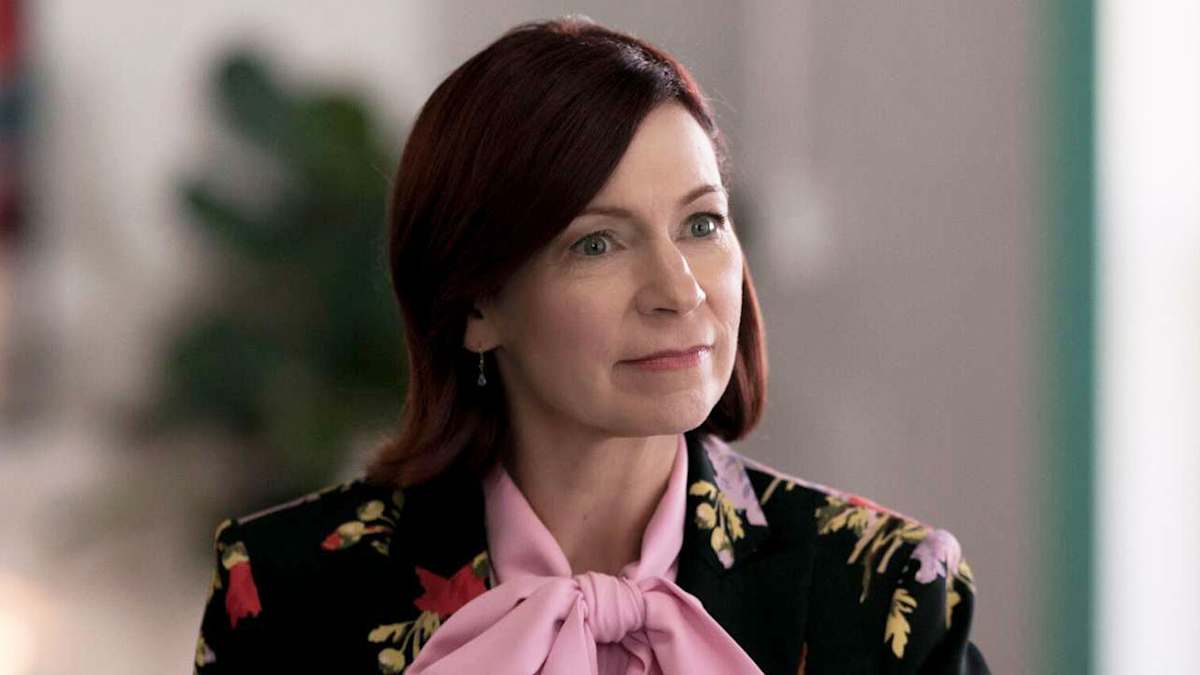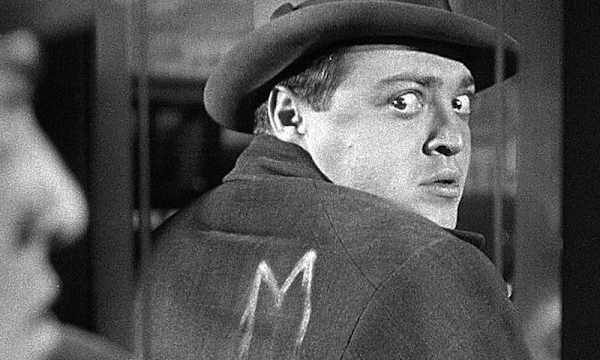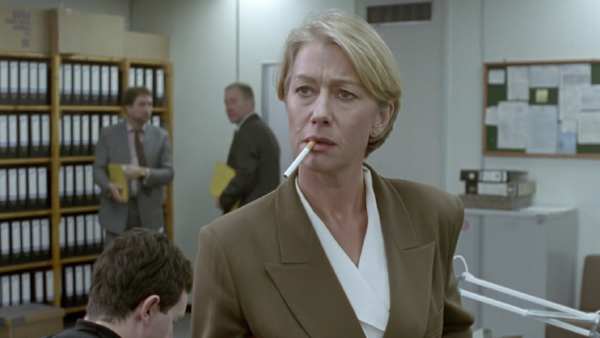Having to admit I avoid usually network programming, I was delighted to discover "Elsbeth" on CBS. I knew of but never watched the various Goods -- Fight and Wife -- and didn't realize Elsbeth is a spin-off. But I'm really getting into and enjoying this series about an unusual type of investigator. Carrie Preston is fresh and delightful in the lead, and the roster of guest stars is pretty stunning. I'm just saving up my nerve and pennies to try and add Hulu to my cable service -- I'm told that's not possible anymore, it has to be an app, the thought of which is giving me appoplexy (sorry) -- in order to watch Only Murders in the Building. I'm guessing Elsbeth is one of broadcast network's answers to Only Murders, and that's ok with me. Procedurals are a tough genre to innovate.
One of the first real procedurals was Fritz Lang's "M" from 1931, and it's still fantastic viewing. A child killer is on the loose and not only do the police leap into investigation, so does the local underworld crime boss, who's as repulsed at a killer of children as everyone else, plus it's reflecting badly on his business and reputation. It's also Peter Lorre's first role, and he would continue to burnish his noir/procedural credits at Warner Bros with the genre-defining Maltese Falcon ten years later. Falcon introduced us to the prototypical PI, but Elsbeth harkens back to the eccentric and unexpected as investigator, i.e., the underworld boss seeking to clear his name.
While we love professional private investigators like Sam Spade and Kinsey Millhone, the imperfect, eccentric investigator is also appealing. Columbo is the granddaddy of this genre, but I think of DCI Tennyson, played by Helen Mirren in the Prime Suspect series. Although Tennyson was a police detective, her weaknesses, failings and excruciatingly human faults lead me to place her in the eccentric category. She sometimes solved the puzzle, but often at incredible cost to herself via her own hubris. Elsbeth isn't self-destructive like Tennyson, but let's not hold that against her.
One obvious reason we like the eccentric investigators -- Poirot and Marple are excluded because their eccentricities are outweighed by their razor-sharp skills of observation and deduction -- is because they are more like us. The eccentrics solve daunting problems in a realm that's not outside the possibility of something we might pull off ourselves, if asked. These are two different approaches -- the superhuman investigator who unmasks the criminal in a dazzling display of intelligence, and the more lifelike bumbler that makes us feel a little better about ourselves.
One more comment about Elsbeth is the extraordinary costuming by Daniel Lawson. In this world of instant ratings, followers, likes and clickbait, it's wonderful to see something done for its own sake, or for whimsy. Lawson has created a wardrobe for Elsbeth that is undoubtedly otherworldly, but not in a way that disrespects the character or the audience. Elsbeth's collection of pinks, bows and tote bags are simply fun and delightful, and reveal a refreshing playfulness that also, I am told, slyly references the plot of each episode. We have become so ground down with homogeneity that something as skillfully delightful as Lawson's costuming for this show is truly a cause for celebration.




